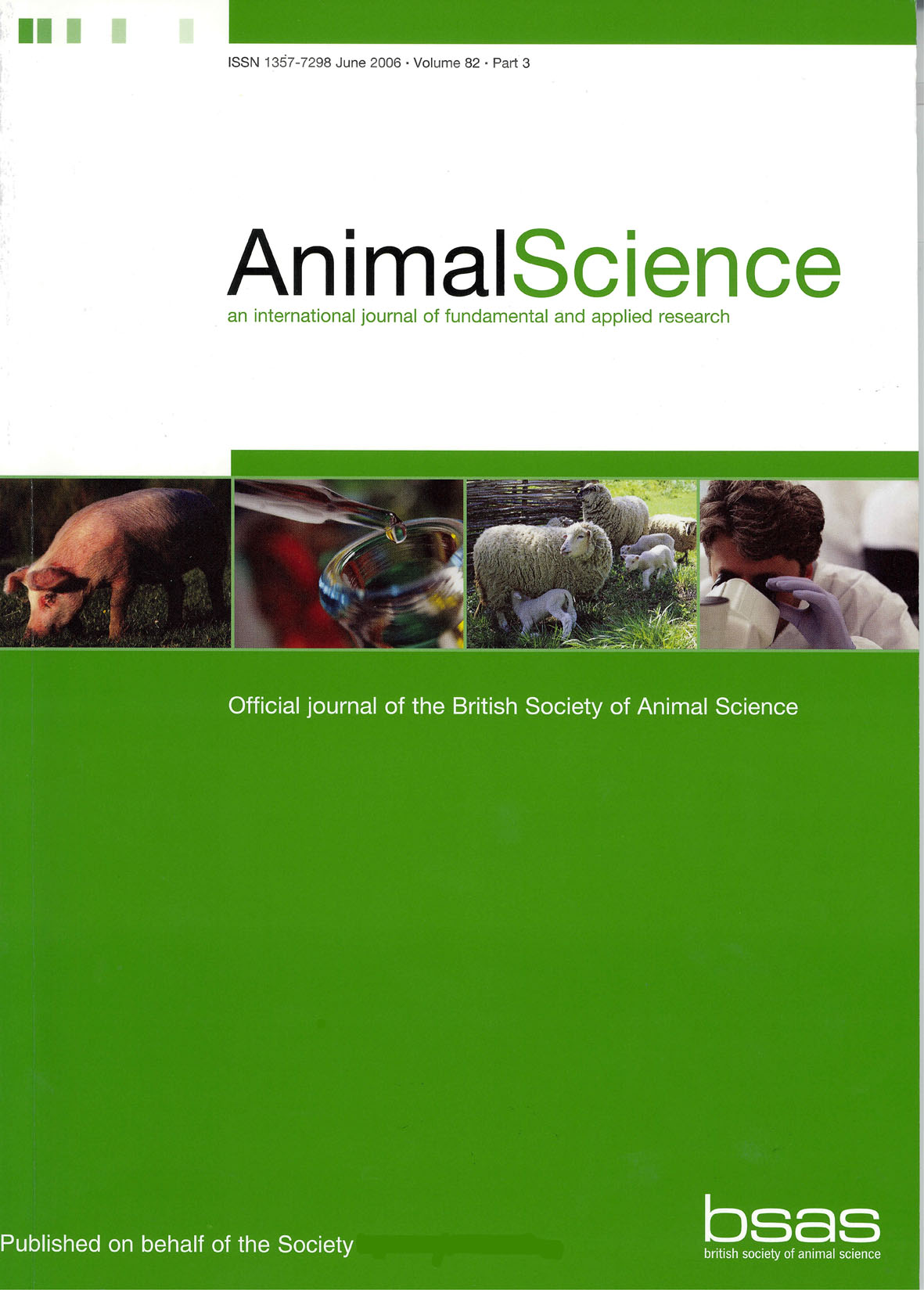Article contents
The performance of dairy cows with access to self-feed silage offered concentrates from a free-access dispenser
Published online by Cambridge University Press: 02 September 2010
Abstract
In two experiments cows with access to self-feed grass silage were offered concentrates either twice daily in the milking parlour at a fixed level (controls) or in addition given free-access to a concentrate dispenser sited in the self-feed area (dispenser). A time-lapse mechanism on the dispenser limited successive 1 kg feeds to a minimum of 10 min in experiment 1 and 5 min in experiment 2. The ‘dispenser’ cows had significantly greater total concentrate intakes than had the controls (10·4 v. 7·1 kg/day in experiment 1, 13·4 v. 7·3 kg/day in experiment 2), but there was a large variation in intake between individuals. Access to the dispenser increased milk yields only slightly, reduced milk fat concentration and increased milk protein concentration and live-weight gain. Following turnout to grass in the spring, there was evidence that the cows that had been on the dispenser treatment showed a faster rate of decline in milk yield than did the controls, and this was supported by lower lactation yields in the dispenser group.
- Type
- Research Article
- Information
- Copyright
- Copyright © British Society of Animal Science 1984
References
REFERENCES
- 3
- Cited by


